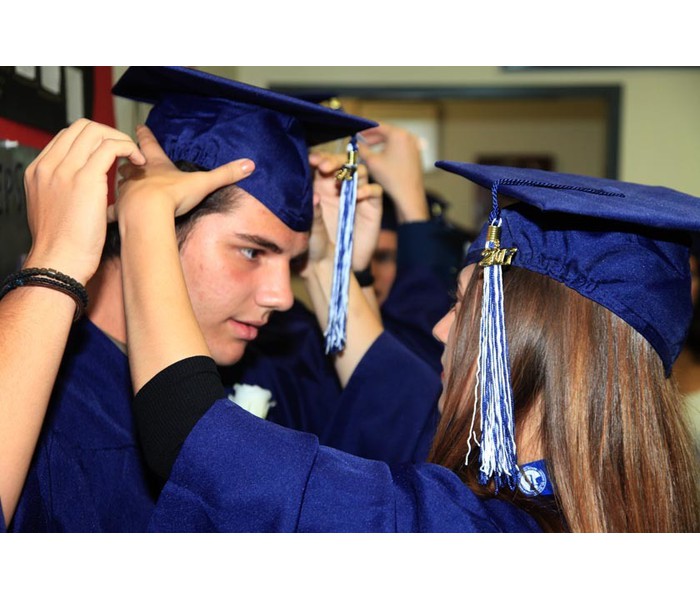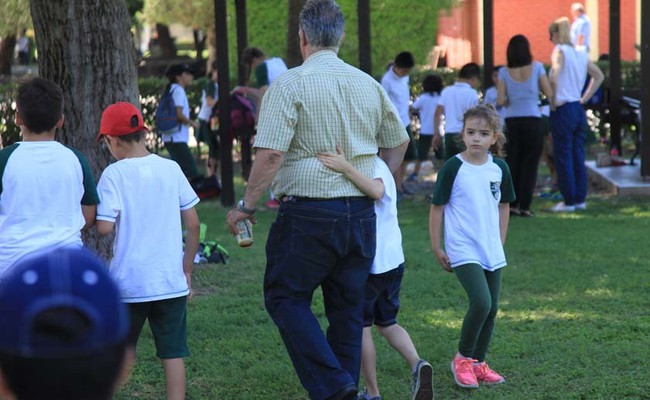Nurturing Respectful Relationships for Life
October 20, 2017

We’ve all had at least one teacher who has inspired us; one who remains in the mind and heart as a notably significant influence – because she had a contagious passion for a subject, because he drove you to achieve beyond your preconceived limits or perhaps due to a single teaching moment with the teacher. Whatever the genesis, the single most important factor as to why people in our lives are inspirational to us is an affective one – i.e., it is the way they make us feel. So, it was probably your relationship with a favorite teacher that created a valuable and enduring influence on you.
For me, many teachers stand out. One was my middle school health teacher, Mr. Shade, who, despite a personal tragedy that year, was an eternal optimist who knew how to make every student in the room feel as if s/he was the most important person in the world – each of us unwitting that others were feeling equally ‘most important.’ The confidence and voice that we each collected through Mr. Shade’s subtle and individualized attention was categorical for young middle schoolers routinely struggling to define themselves.
In a world prolific with ambiguous online advice and information, the significance of our children developing meaningful relationships at school cannot be overstated. As educators, we know this and so we strive for every child at Pinewood to feel secure and confident by nurturing respectful relationships with them through our learning experiences just as Mr. Shade did for me and just as your favorite teachers did for you. As Rita Pierson reminds us in her spirited must-watch TEDTalk, Every Child Needs a Champion,
No significant learning can happen without a significant relationship.
Or, as Pierson more candidly states,
Kids don’t learn from people they don’t like!
For and beyond academics, we also aim at Pinewood to foster an environment where each child has adults with whom s/he feels comfortable going to for unconditional social-emotional support. This may be a teacher, our school psychologist, our learning specialist or a member of the administration. The allowance for this network of support is as important as our students’ academic development and research in the area of SEL (social-emotional learning) explains why. Here are three reasons that resonate with me.
From Scientists to Schools: Social, Emotional Development Crucial for Learning
Schools must broaden their approach beyond a narrow focus on academic work, a group of nationally recognized scientists said in a consensus statement [in September]. That’s because students’ social, emotional, and academic development are “deeply intertwined,” and all are central to learning. “Students who have a sense of belonging and purpose, who can work well with classmates and peers to solve problems, who can plan and set goals, and who can persevere through challenges— in addition to being literate, numerate, and versed in scientific concepts and ideas—are more likely to maximize their opportunities and reach their full potential,” the brief says.
From Promoting Social and Emotional Learning
The importance of SEL for successful academic learning is further strengthened by new insights from the field of neuropsychology. Many elements of learning are relational (or, based on relationships), and social and emotional skills are essential for the successful development of thinking and learning activities that are traditionally considered cognitive (Brendtro, Brokenleg, and Van Bockern 1990; Perry 1996). Processes we had considered pure “thinking” are now seen as phenomena in which the cognitive and emotional aspects work synergistically.
From Inspiring Teachers to Inspire Social-Emotional Learning in Students
What’s inspiring is helping students recognize the humanity within themselves which will enable them to recognize the humanity in other people. And, as they do that, then they start to use their education to contribute to the greater good.

It is continuous and demanding work to meet every child’s needs at Pinewood. It is also necessary. Of course, there’s also something in it for our teachers – it’s immensely rewarding to know that we are building respectful relationships with our students for their academic success, for their well-being and for their meaningful lives.
Dr. Giampapa is the President of Pinewood American International School, a forward-thinking PreK-12 college preparatory school in Thessaloniki, Greece.


